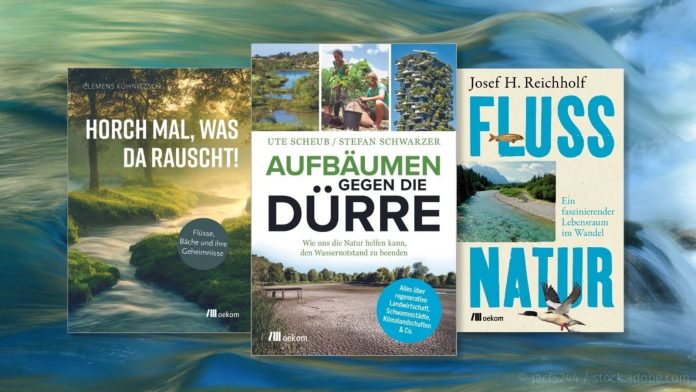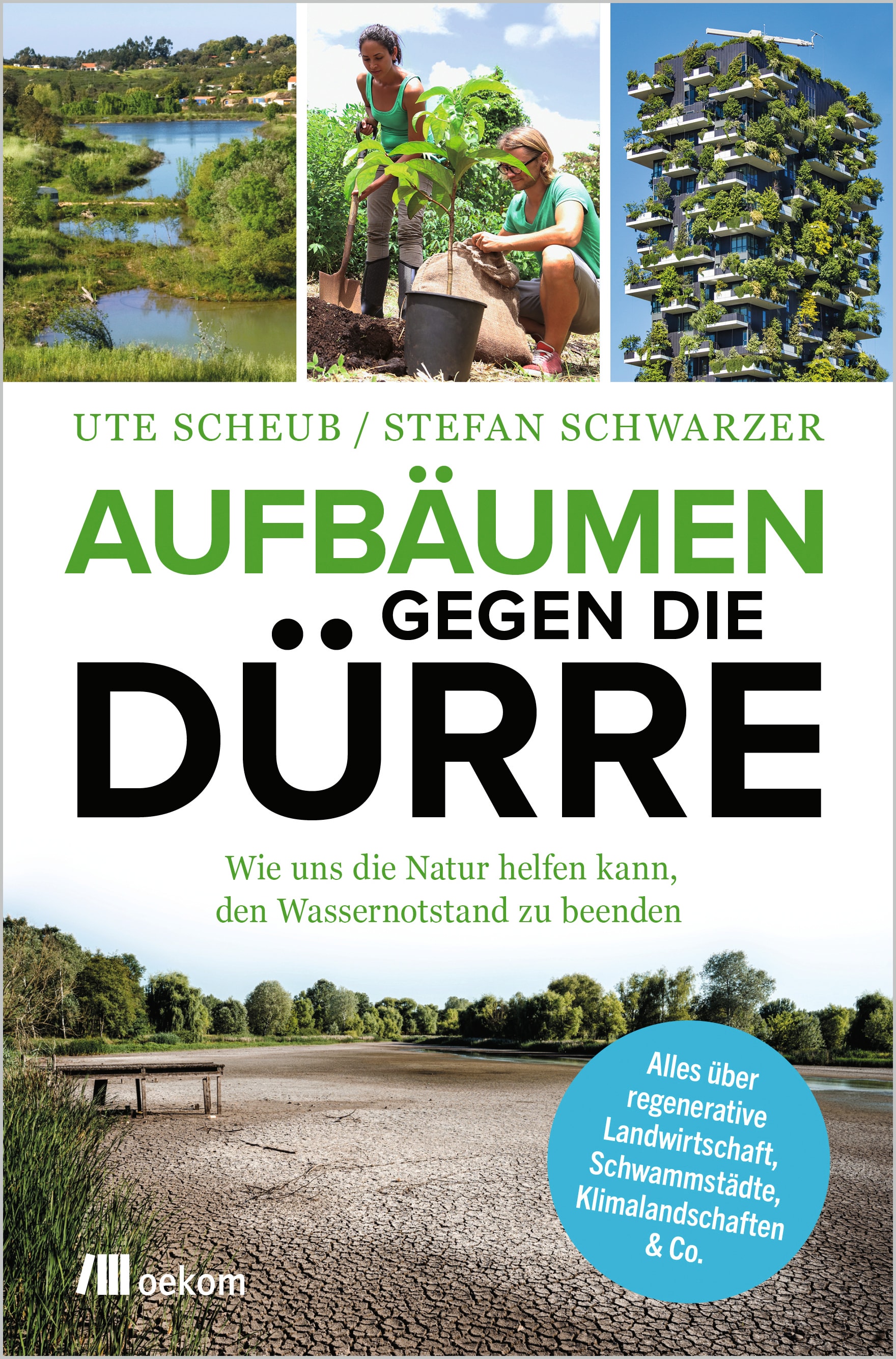Climate change is also posing major challenges to water bodies in many places in Germany. What about the ecosystems in rivers, streams and lakes? What measures for water protection, renaturation and climate adaptation are appropriate? Our reading tips will clarify.
Rivers, streams and lakes have always been the lifelines of humanity. Proximity to water was vital for the first settlements and today we continue to use water for transportation, energy production, agriculture, recreation and more. In recent years, however, it has become increasingly clear how advancing climate change is causing these ecosystems to falter – including here in Germany. First, hot summers brought persistent periods of drought and low water levels in many places, then heavy rain events such as those in July 2021 or most recently in June 2024 caused severe flooding and flooding disasters.
These developments highlight the importance of addressing the health and future of our freshwater ecosystems and related water management. How is climate change already affecting rivers, streams and lakes? What climate adaptation measures and strategies are necessary to preserve water for people and nature? How can flood protection and water protection be combined? And how can renaturation serve to preserve biodiversity?
Our following reading tips are dedicated to these topics. Our recommendations include introductory non-fiction books and magazines as well as practical specialist readings with concrete recommendations for action.
1. “Rebelling against the drought”
Asphalt heats up more than forests, drained moors no longer cool, rain becomes a flash flood without absorbent soil: we have to store water in the landscape again to counter the danger of droughts, heat and floods. Stefan Schwarzer and Ute Scheub explain in “Rebelling against Drought” how functioning water cycles can protect us directly on site from the effects of climate change.
Order now (book: 25.00 euros | e-book: 19.99 euros)
Non-fiction | 2023 | 272 pages | by Ute Scheub and Stefan Schwarzer
2. »River Nature«
The natural scientist and best-selling author Josef H. Reichholf taught aquatic ecology and nature conservation at the Technical University of Munich for 30 years and conducted research on the Inn and Isar for decades. In “River Nature” he conveys this valuable wealth of knowledge to us in an understandable and entertaining way. The book explains how ecosystems function, how human interventions change them and how rivers regain their diversity, flood protection and recreational value through renaturation. He goes on excursions to various rivers in Central Europe and their animal inhabitants.
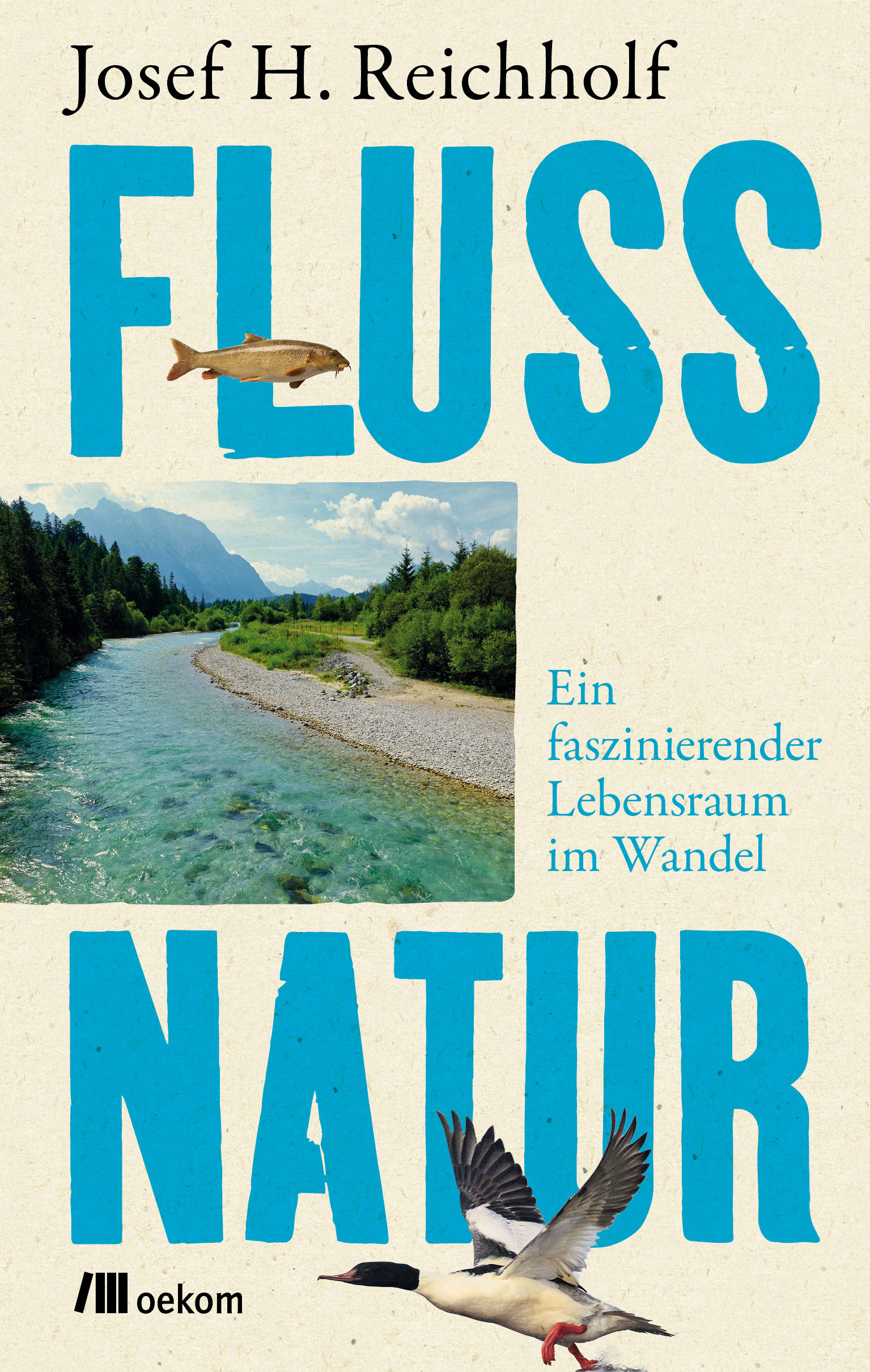
Order now (book: 24.00 euros | e-book: 18.99 euros)
Non-fiction | 2021 | 320 pages | by Josef H. Reichholf
3. “Listen to what’s rustling!”
What about our rivers and streams? In “Listen, what’s rushing!”, the hydrobiologist Clemens Kuhnitzsch takes a close look at and into our rivers, the animals and plants that live in them and their interrelationships.
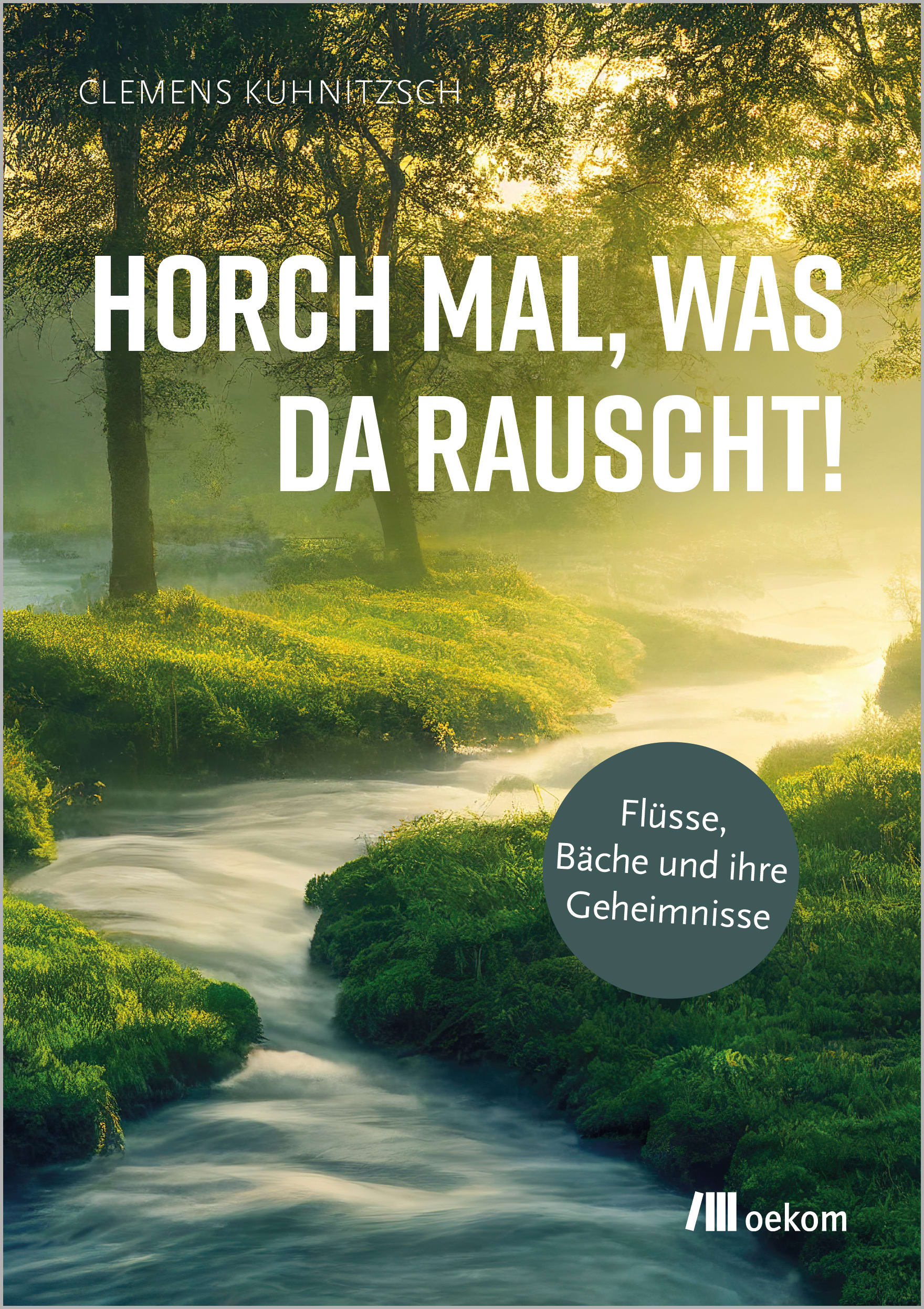
Order now (book: 24.00 euros | e-book: 18.99 euros)
Non-fiction | 2024 | 184 pages | by Clemens Kuhnitzsch
4. »Water paths«
In “Water Paths,” author Torsten Schäfer takes stock of German rivers and streams using the example of his home river, the Modau. Using elegant language, he takes the reader on a journey from source to mouth. The encounters and observations along the way clearly show how climate change is changing water bodies, how biodiversity is suffering and how people are resisting these developments.

Order now (book: 24.00 euros | e-book: 18.99 euros)
Non-fiction | 2021 | 288 pages | by Torsten Schäfer
5. »Planning nature-based solutions in river landscapes«
Flood protection through water retention, strengthening biodiversity and greater recreational and leisure value: the renaturation of river landscapes has numerous advantages. The compact handbook “Planning nature-based solutions in river landscapes” explains how such measures can be developed and implemented. The authors of the PlanSmart young research group provide well-founded information on the individual planning steps as well as practical method profiles for their implementation. The book is available to download digitally for free in Open Access.
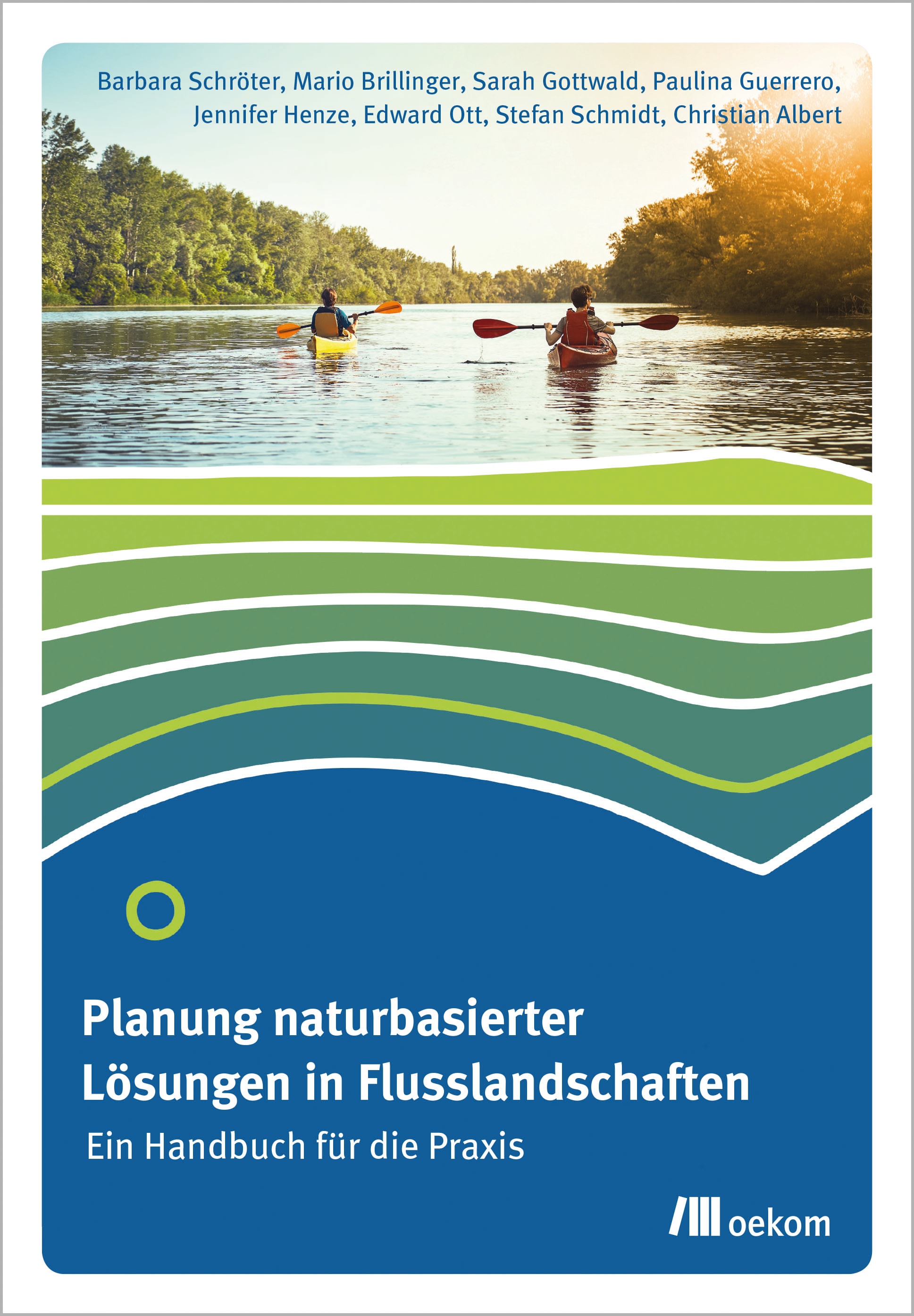
Order / download now (book: 26.00 euros | e-book: free in open access)
Technical book | 2021 | 120 pages | by Barbara Schröter, Mario Brillinger, Sarah Gottwald, Paulina Guerrero, Jennifer Henze, Edward Ott, Stefan Schmidt and Christian Albert
6. “Learn from disasters?”
The book “Learning from Catastrophes?” by Maike Böcker was published in the Transformations series in 2018 and deals with the Oder flood in 1997. The analysis shows which special factors promoted the disaster and what consequences were drawn as a result – and why these learning processes can even promote new disaster scenarios.

Order now (book: 34.95 euros | e-book: 27.99 euros)
Technical book | 2018 | 312 pages | by Maike Böcker
7. “Water management in climate change”
Flood or low water – climate change is changing the water balance in many places. In the book “Water Management in Climate Change” from the Climate Change series, researchers examine the effects on various regions in the north, east, west and center of Germany and show possible measures for climate adaptation.
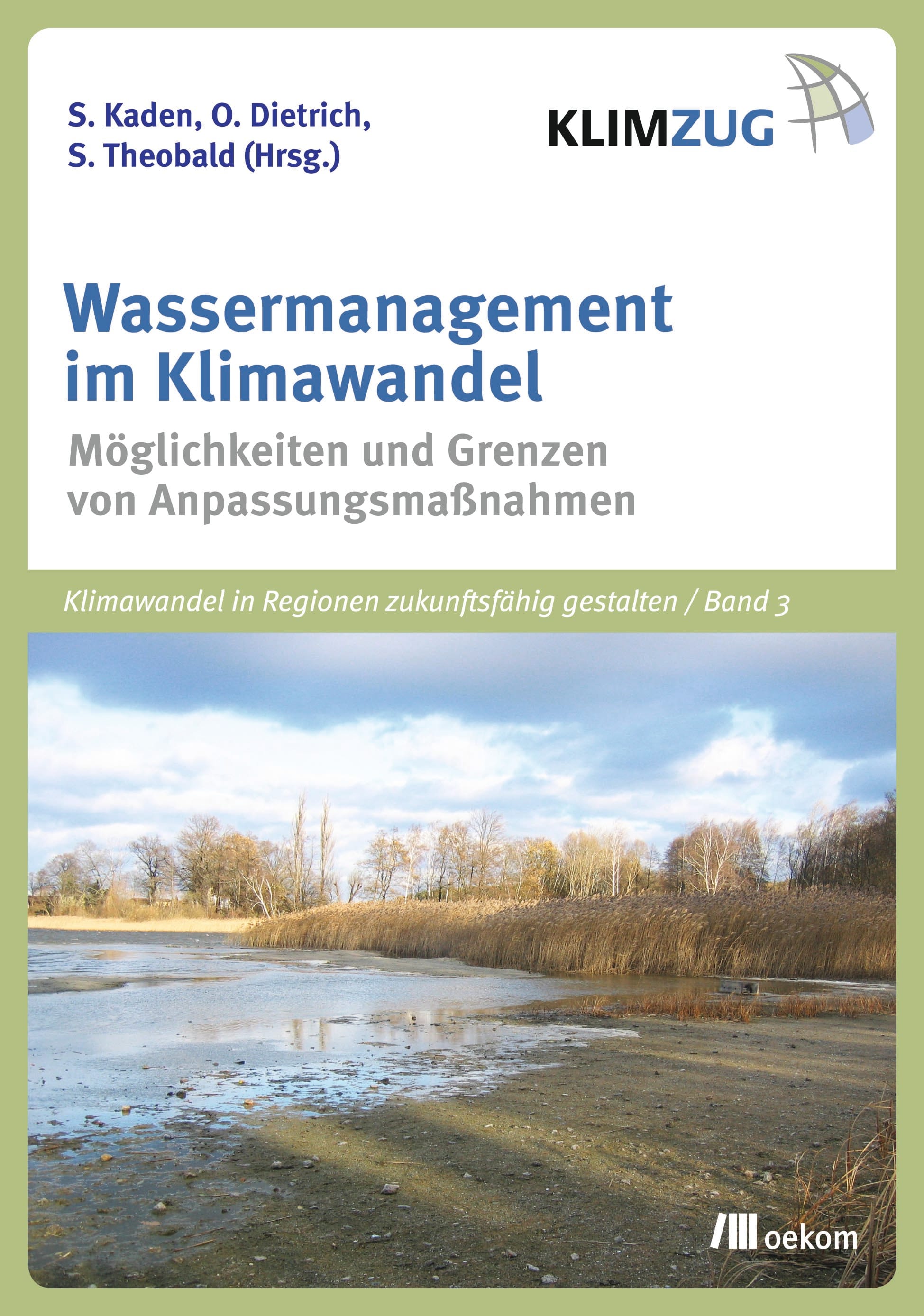
Order now (book: 44.95 euros | e-book: 35.99 euros)
Technical book | 2014 | 525 pages | by Stefan Kaden, Ottfried Dietrich and Stephan Theobald (eds.)
8. National Park
The magazine National Park regularly devotes itself to the topic of water protection from streams to large oceans and provides valuable reports and travel features about protected areas and their wilderness. The most recent title topic was about rivers as lifelines of our landscape (02/24), the Šumava National Park with its forests, moors, lakes and streams (01/21), nature conservation on the Mekong (02/20) and the natural Vjosa in Albania (02/2019).
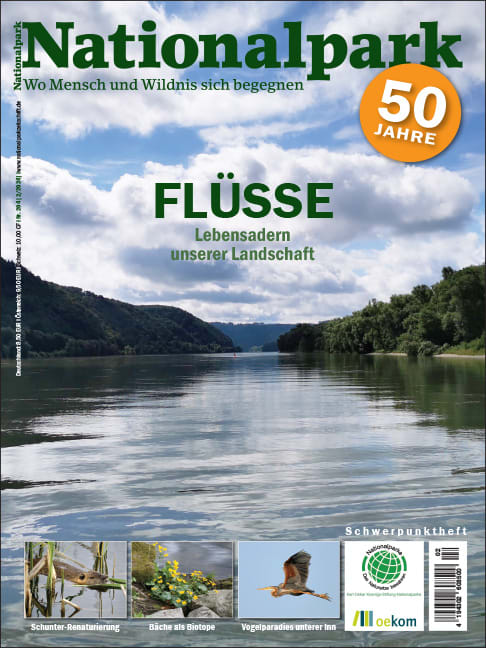
Order now (booklet: 7.90 euros | PDF: 6.70 euros | print subscription: 28.40 euros | digital subscription: 26.80 euros)
trade magazine | 4 issues per year
Further reading tips about water protection, flooding and more
#naturaloekom: We live sustainability
 oekom publishing house is not only committed to sustainability in terms of content, but is also making progress in production and distribution with a voluntary commitment to sustainable publishing. Our books are produced in a climate-friendly manner and are mostly printed on recycled paper. You can read detailed information about how oekom is actively committed to greater sustainability in the oekom section of course.
oekom publishing house is not only committed to sustainability in terms of content, but is also making progress in production and distribution with a voluntary commitment to sustainable publishing. Our books are produced in a climate-friendly manner and are mostly printed on recycled paper. You can read detailed information about how oekom is actively committed to greater sustainability in the oekom section of course.

